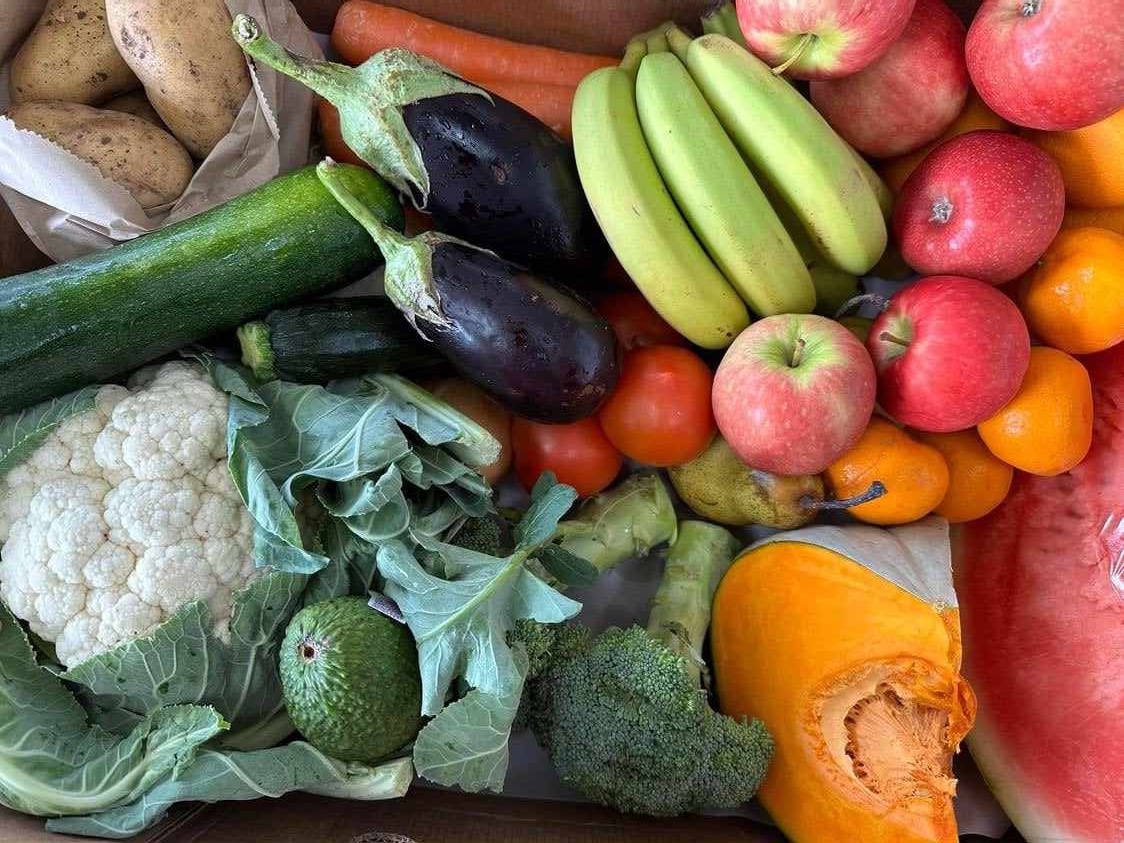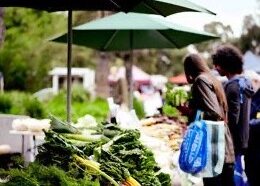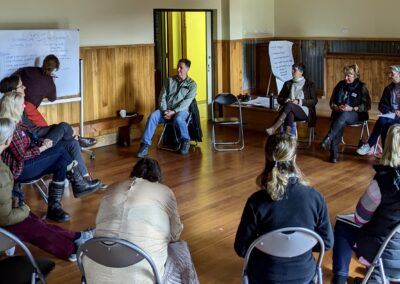Resource
Logistics for Food Enterprises
This resource has been developed from the first event “Get Your Food Moving” of the monthly webinar series: Like Peeling an Onion that explores the layers of community food enterprises.

Event One Insights –
We heard from two food hubs that have very different operations that have evolved based on their local contexts. Here are insights from each community food enterprise:
EdiGrocer – Edithvale, Victoria
Started in 2017 with an aim of 15 local families subscribing to a box scheme.
Now offering: Standardised fruit & veg boxes: Small $30, Medium $45, Large $60. Aim for minimum 5 veg, 2 fruit. Add-ons possible through their website. Store open twice a week to move any excess produce from boxes.
Produce supply: rely on a core group of 10-15 farmers within 50km radius twice a week (source from ~90 different producers throughout the year).
Distribution: two vans that deliver 95% of the boxes all within 4km radius of the shop
Customers: approximately 200 families per week (250 peak at Covid height)
People Power: approximately 110 paid hours each week with 6 staff (no volunteers)
Software systems:
- Square site for shop, POS and invoicing
-
Airtable (free version) for back-end database
- Google Sheets for ordering
-
Routific optimising delivery run – import/export out of Airtable
- SMS: use an Android phone feature to log on computer to send texts to producers (game-changer for communications!)
- Xero for payroll
- Facebook group for members to connect, share recipes, ask produce questions (e.g. how to use uncommon, seasonal veg) , create community
Baw Baw Food Hub – Warragul, Victoria
Started in 2014 as a small veg box scheme, exchanging boxes with customers at a local carpark
Now offering: a store open 5 days/week (Tuesday to Saturday) offering fruit, veg, dairy, meat and more. Plus standardised veg box subscription available: Small $25, Medium $35, Large $50 with $3 discount for hub subscribers. Add-ons possible to subscription.
Customers: were doing up to 200 boxes but most people were coming to hub to collect decided to focus more on the hub as a green-grocer.
Produce supply: do a weekly wholesale market run and stock 60-70 different producers from across Australia. Preference pyramid is for local and organic > local > organic.
Distribution: small amount of orders delivered each week, primarily pick up in store
People Power: 8 paid staff and approximately 25 volunteers each week.
Software systems:
- Open Food Network for online shopfront
- Google Sheets are used for customer databases, price databases
-
DEXT (Receiptbank) to digitise customer invoices
- Xero used for bank reconciliation, payroll super
-
ODOO – open source software that has been custom-built by Baw Baw Food Hub based on their needs to integrate Xero, Googlesheets and Open Food Network shopfront
Key Discussion Points:
- Always look for ways to improve or refine your system based on your context and needs.
- Mental and physical health and wellbeing is a priority: efficient systems = less stress!
- Packing methods vary from trolley systems to kanban systems
- Cross referencing varies from print out lists to online lists on tablet devices
- Webinar participants all noted that their enterprises had at least two people checking what was being packed.
- Use of visual box cues: colour coding, size of boxes
- How staff/volunteers are trained and empowered to carry out their role is critical.
- Types of offerings varied amongst participants: ‘Free Choice’ (custom) boxes, ‘Standard’ (set) boxes, Add-ons and in-store options.
- Challenges/tensions: supporting small scale growers that have inconsistent supply or small volumes (suggestion made: make it shop-stock not box-stock) and how to increase the offering (add-ons, customisation) to encourage new customers and retain existing while keeping sane and efficient.
Further Resources
Software for optimising delivery routes:
- Google Maps (free for 10 stops or less and one driver at a time)
- Routific (used by EdiGrocer)
- Yojee (being used for the Open Road pilot project)
Open Food Network Australia ‘Learn’ resources:
- Baw Baw Food Hub – Background Case Study
- Edi Grocer – Background Case Study
- Food Solution- A Community Food Enterprise Startup Guide
- Lean Start-Up
Recommendations:
- “Lean Toyota Production system” (EdiGrocer follows this methodology of doing more with less)
- The Lean Farm by Ben Hartman (recommended by Open Food Network Australia and EdiGrocer)
Latest Resources
Can we help?
Have an idea, a project or a question? Want help using the Open Food Network software? Get in touch and find out how we can help you with it.
Keep in touch
Join us
Create a listing, shop or group directory on the Open Food Network. Tell me more!

Read our Terms and conditions | Find us on GitHub
Open Food Network is a free and open source software platform. Our content is licensed with CC BY-SA 3.0 and our code with AGPL 3.
We take good care of your data. See our cookies policy
Open Food Network respectfully acknowledges the traditional custodians of the unceded lands on which we meet, work and live. We pay our respects to their Elders, past, present and emerging and acknowledge their deep spiritual relationship to country.




